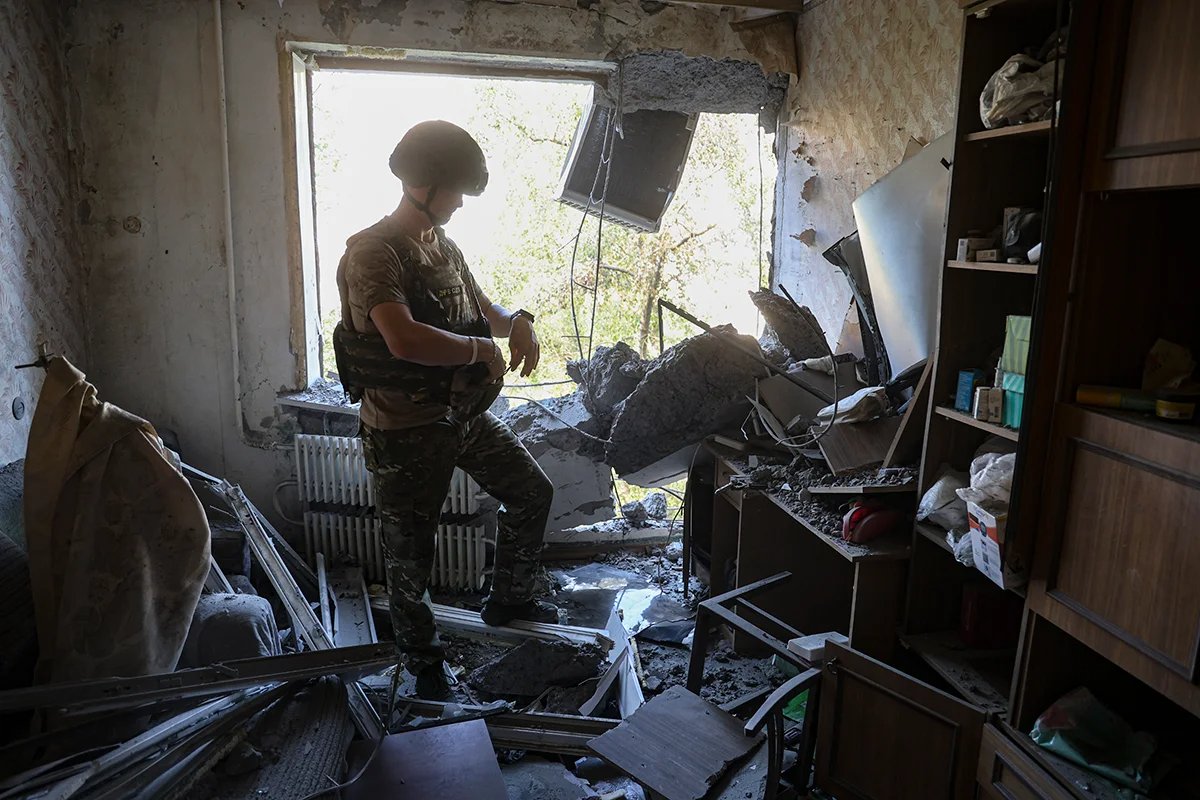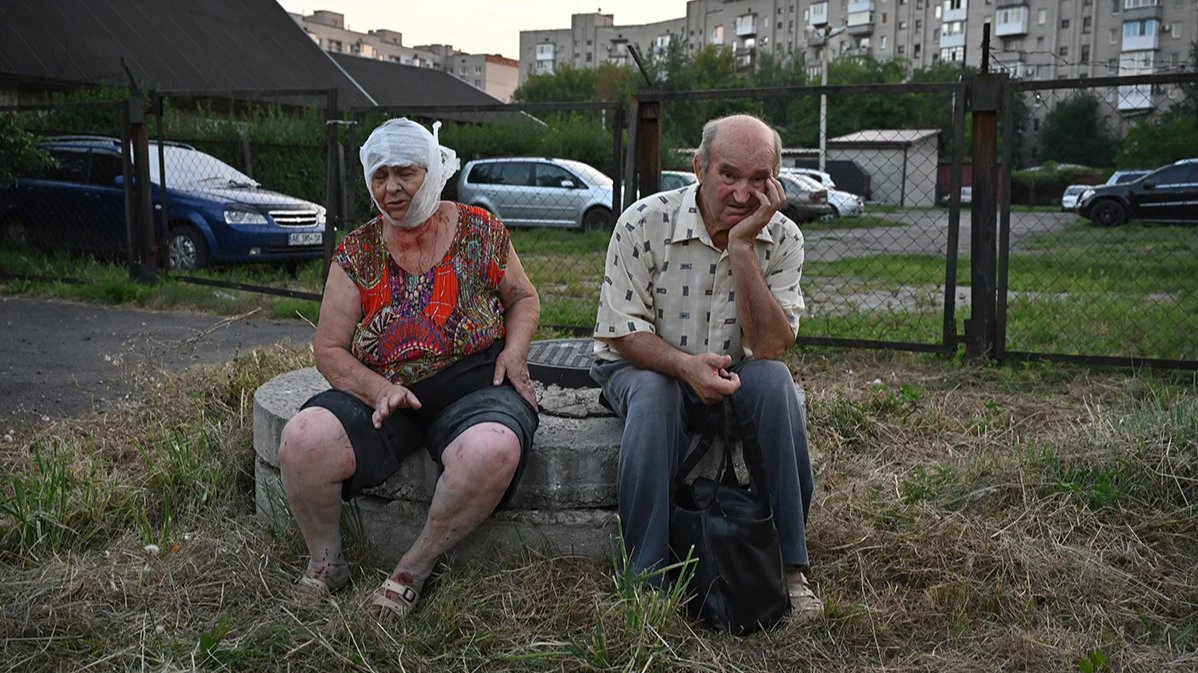While Ukrainian troops continue to attack in the Kursk region, the Russian army’s advance in eastern Ukraine has not slowed and Russian units are now just 10 kilometres from the key city of Pokrovsk. As the last civilian residents are being evacuated, the Armed Forces of Ukraine (AFU) are fortifying the city and preparing to defend it.
According to information from the US-based Institute for the Study of War (ISW), Russian troops recently advanced to the southeast of Pokrovsk and continued offensive operations to capture the city.
Russian forces in the area have a “five-to-one manpower advantage”, according to the ISW, which added that while Russian commanders may have redeployed a “limited” number of troops from Pokrovsk to Russia’s southwestern Kursk region, where a Ukrainian incursion is ongoing, Russian offensive operations around Pokrovsk are continuing.
An operational crisis
The Ukrainian army is still unable to stabilise the front in the area of Pokrovsk, military expert David Gendelman told Novaya Gazeta Europe, adding that if Russian forces reach Pokrovsk, Ukraine would face “a real operational crisis”. “The Russians will control an important communications hub, cut off the lateral road, and threaten the flank and rear areas of Ukrainian defence.”
While the Russians are “determined” to reach Pokrovsk by the end of this summer’s military campaign, the AFU has so far managed to halt the Russian advance approximately 10 kilometres from the city using artillery and drones, military expert and AFU reserve colonel Roman Svitan told Novaya Europe.
While some Russian sabotage and reconnaissance groups may advance a few kilometres closer to Pokrovsk, they are unlikely to get much further than that in the near future, Svitan added, citing the newly set up “serious fortified area” around the city and its plentiful stockpiles of ammunition. “The Russians themselves realise that they won’t take Pokrovsk this year,” Svitan noted.
Still, Israeli military commentator David Sharp says that Russian troops now have the potential to seize Pokrovsk and the neighbouring town of Myrnohrad as the advance continues, causing “major disruptions” to AFU logistics. Russia’s capture of Pokrovsk would threaten all the supply chains in the southern part of the Donetsk region, as the railway line to Donbas ends in Pokrovsk, Russian military expert Kirill Mikhailov explained.
“Ukrainian soldiers have shown the ability to defend cities for several months.”
Ukraine has already evacuated civilians from Pokrovsk and the surrounding areas, causing what Sharp referred to as “considerable financial and moral damage”, not least as the region’s coal mines are vital for the Ukrainian economy.
However, if the Russian military succeeds in taking Pokrovsk, it would mark a “significant step towards occupying the entire Donetsk region”, making the threat of Russia’s unstoppable march appear all the more real to Kyiv and the West, and one that it believes will increasingly incline both to start favouring peace negotiations.
“Ukrainian soldiers have shown the ability to defend cities for several months,” Mikhailov says, adding that while this could also happen in the case of Pokrovsk, the rather swift loss of the nearby town of Novohrodivka, where 14,000 people lived before the war, did not inspire optimism. “Time and again, the Russians have managed to crush the Ukrainian army’s defence,” Mikhailov said.
To start storming Pokrovsk, Russian troops need to fortify their flanks and take the town of Selydove, where battles are currently being fought, Mikhailov added, however, Ukrainian sources say that the situation near Selydove is “more favourable” for the AFU than it was in previous days.
Despite all the talk of a “positional stalemate” after the failed Ukrainian counterattack in 2023, successful offensives are still quite possible “if sufficient forces are mustered and are used correctly”, Gendelman believes. General Andrey Mordvichev, commander of Russia’s Central Group of Forces, which is deployed in the area, has made no errors so far, Gendelman noted, adding that Mordvichev was “advancing according to all the rules”.
“The flanks are constantly widening, and making counterstrikes and cutting off the flanks is becoming extremely difficult, even if the AFU finds the troops and resources to do so,” Gendelman explained.
Svitan agrees that Russian forces are now strengthening their flanks — offensive operations have begun to the south of Pokrovsk in the direction of Karlivka, which has already been seized by the Russian army, Kurakhove and Vuhledar. Ukrainian units are currently positioned on the banks of the Karlivka water reservoir, and it is this region, Svitan believes, that will soon see the fiercest battles.
Capturing Pokrovsk has political as well as military significance for Russia, Svitan said, as without it, the Russians will not be able to fulfil Putin’s order to reach the borders of the Donetsk region, located approximately 15 kilometres west of Pokrovsk.
The Russians will try to cut off the Vuhledar bulge where the Ukrainian army has a stronghold, Svitan said, adding however that Ukraine’s decision to rotate its troops in the area and replace the heavily fatigued 72nd brigade, which had been defending this area for two years, may yet turn the tide in Ukraine’s favour.
“Serious fighting is taking place in the Vuhledar region,” Mikhailov confirmed, noting that Russian troops had advanced to the northeast and to the east of Vuhledar, putting additional pressure on the AFU. Also, Mikhailov says, the storming of the city of Chasiv Yar by Russian troops in Donbas is continuing, but no Russian advances have been observed in that direction for a long time.

A Russian soldier examines damage caused by shelling in a residential building in the centre of Donetsk, Ukraine, 16 August 2024. Photo: Alessandro / Guerra / EPA
Shaking up the board
“Without going into the specific tactical tasks of the Ukrainian army in the Kursk direction, we can now see that strategically the Ukrainian command wanted to shake up the chessboard, because the game was going badly for Ukraine,” Gendelman said.
“The Russian leadership does not feel a strategic threat from the Ukrainian army’s incursion into the Kursk region,” Sharp agreed. “It’s clear that Ukrainians don’t have the power to threaten the regional centre or isolate the Russian troops in the Kharkiv region. This means that the worst has already happened,” he added.
The official Russian position on the Kursk region is all about “normalisation”, Gendelman believes — “they are not sounding the alarm, there are no calls to ‘rise up and fight for the country’, nothing much is going on”.
“Putin isn’t afraid of pressure from Russian society,” Sharp believes, noting that he can allow himself to delay finding a solution to “the Kursk problem”. “Evidently, a victory in Ukraine is the result he is trying to achieve,” he concluded.
“A large-scale war is a war of numbers and balance of forces. It cannot be won through cunning tricks alone.”
Svitan believes, however, that Ukraine’s defence in Donbas and the AFU’s offensive in the Kursk region are “fundamentally different and unconnected operations”, as the Kursk incursion was meant to “secure the border in the Sumy region”, which borders Russia’s Kursk region, as well as to organise a more convenient line of defence along the Seym river. “When reliable defensive structures are built along the shore, part of the divisions may be redeployed from there to the Donetsk direction,” Svitan said.
“A large-scale war is a war of numbers and balance of forces. It cannot be won through cunning tricks alone,” Gendelman explained. While the Kursk region suffered an unexpected attack in a weak spot, the Russian army has been steadily advancing in the direction of Pokrovsk since winter, as Ukrainian brigades on the frontline became exhausted and were unable to hold all directions effectively due to the postponed law on mobilisation.
“The Kremlin probably thinks that Ukraine will either withdraw from Russian territories itself, or it will be driven out at a convenient movement during an operational pause in battles in Donbas,” Sharp continued, adding that Moscow “doesn’t think it’s worth stopping a success offensive on Pokrovsk for the sake of the Kursk region” and is expecting Kyiv to redeploy troops from Russian territory to balance Ukraine’s “crumbling defences”.

